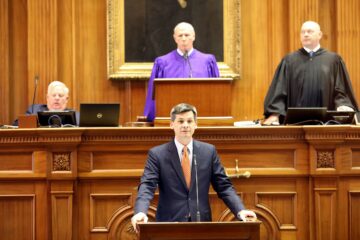The White House recently announced plans to continue to freeze federal student loan payments until Aug. 31 of this year. This would be the seventh student loan freeze since the beginning of the COVID-19 pandemic. The freeze will end before the midterm elections, leading many to think that activists will push for cancellation of federal student loan debt after the freeze ends. On the campaign trail, President Joe Biden campaigned for some student loan forgiveness, but since taking the presidency, Biden has yet to follow through on this, saying he believes it needs to happen through legislation rather than executive action.
Researchers are currently working on a revamped COVID-19 vaccine due to the rise in the number of variants of the virus. The hope for these updated vaccines is to have them available by the fall. The formula for the vaccines would need to be finished as soon as June in order to meet their plans for a fall rollout. With the number of different variants of COVID-19, it is hard to predict correctly what will be needed for an updated vaccine. It is possible that there will be a completely new variant dominating by the time the vaccine could be available to the public. It is possible, though, that the existing vaccines will be the best option for continuing to fight the virus in the end.
The U.S. House voted last Wednesday to recommend criminal contempt charges against two aides of former President Donald Trump after the former aides disobeyed subpoenas from the committee investigating the insurrection on the Capitol and other events from Jan. 6, 2021. Many of those close to Trump that have been asked to come before the special committee have refused to meet with them, leading to the House’s decision to vote for contempt for these two aides.
Judge Ketanji Brown Jackson was confirmed to the Supreme Court Thursday, becoming the first Black woman to hold the position. Jackson was confirmed by a vote of 53-47, meaning three Senate Republicans crossed party lines in this historic Supreme Court vote.




